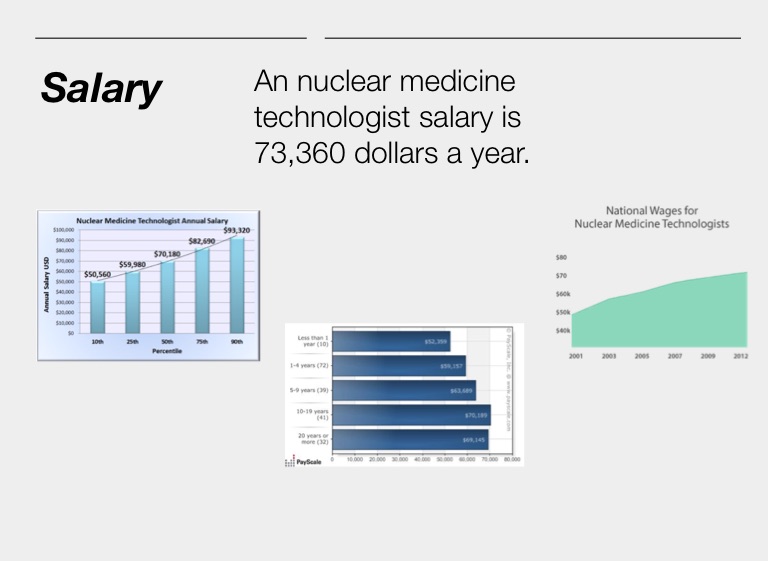Salary Of A Nuclear Medicine Technologist

The field of nuclear medicine is vital for diagnosing and treating various diseases using radioactive materials. A key role in this field is held by the Nuclear Medicine Technologist, professionals responsible for preparing and administering radioactive drugs and operating imaging equipment. Consequently, the salary of these technologists is a significant factor for both current practitioners and those considering entering the profession.
This article will delve into the compensation landscape for Nuclear Medicine Technologists, examining key factors that influence earnings and presenting the latest data from reputable sources. Understanding these trends provides crucial insights for career planning and workforce development in this specialized healthcare area.
National Averages and Salary Ranges
Data from the U.S. Bureau of Labor Statistics (BLS) provides a comprehensive overview of the median annual salary for radiologic technologists and technicians, which includes Nuclear Medicine Technologists. According to the latest figures, the median annual wage for these professionals was $65,320 as of May 2023.
The BLS also highlights the range of earnings, with the lowest 10 percent earning less than $46,390, and the highest 10 percent earning more than $98,690. This significant range demonstrates the impact of factors such as experience, education, location, and employer type on earning potential.
Factors Influencing Salary
Several elements contribute to the variance in salaries among Nuclear Medicine Technologists. Experience is a primary driver, with more seasoned professionals typically commanding higher pay rates.
Education and certifications also play a crucial role. Technologists with advanced certifications, such as those offered by the Nuclear Medicine Technology Certification Board (NMTCB), may be eligible for higher salaries.
Geographic location significantly affects earning potential. States with a higher cost of living or greater demand for healthcare services often offer more competitive salaries.
Furthermore, the type of employer impacts compensation.
Hospitals and large medical centers tend to offer higher salaries compared to smaller clinics or private practices.
Regional Variations
Salary data varies considerably by state and metropolitan area. According to the BLS, states with some of the highest average salaries for radiologic technologists and technicians include California, Hawaii, and Massachusetts.
Metropolitan areas with high concentrations of healthcare facilities often present more lucrative opportunities. Factors such as demand for specialized services and the prevalence of research institutions can drive up salaries in certain regions.
Job Outlook and Future Trends
The job outlook for radiologic technologists and technicians, including Nuclear Medicine Technologists, is projected to grow 6 percent from 2022 to 2032, according to the BLS. This growth rate is about average for all occupations.
An aging population and increased prevalence of chronic diseases are expected to drive demand for diagnostic imaging and therapeutic procedures. This increased demand should translate into stable employment opportunities and potentially higher salaries for qualified technologists.
Human Interest: A Day in the Life
Consider the story of Sarah, a Nuclear Medicine Technologist with five years of experience at a large metropolitan hospital. Her responsibilities range from preparing radiopharmaceuticals to assisting in complex imaging procedures, such as PET/CT scans for cancer diagnosis.
Sarah's annual salary reflects her experience and the high demand for her skills in the area. Beyond the financial rewards, Sarah finds deep satisfaction in contributing to patient care and making a tangible difference in people's lives.
While salary is a significant factor, many Nuclear Medicine Technologists are drawn to the field by the intellectual challenge and the opportunity to work with cutting-edge technology. The combination of technical expertise and compassionate patient care makes this profession both rewarding and impactful.
In conclusion, the salary of a Nuclear Medicine Technologist is influenced by a complex interplay of factors, including experience, education, location, and employer type. Staying informed about these trends and pursuing ongoing professional development can help technologists maximize their earning potential and advance their careers in this dynamic and essential healthcare field.
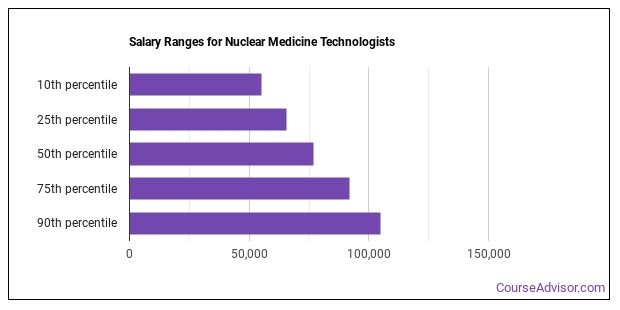


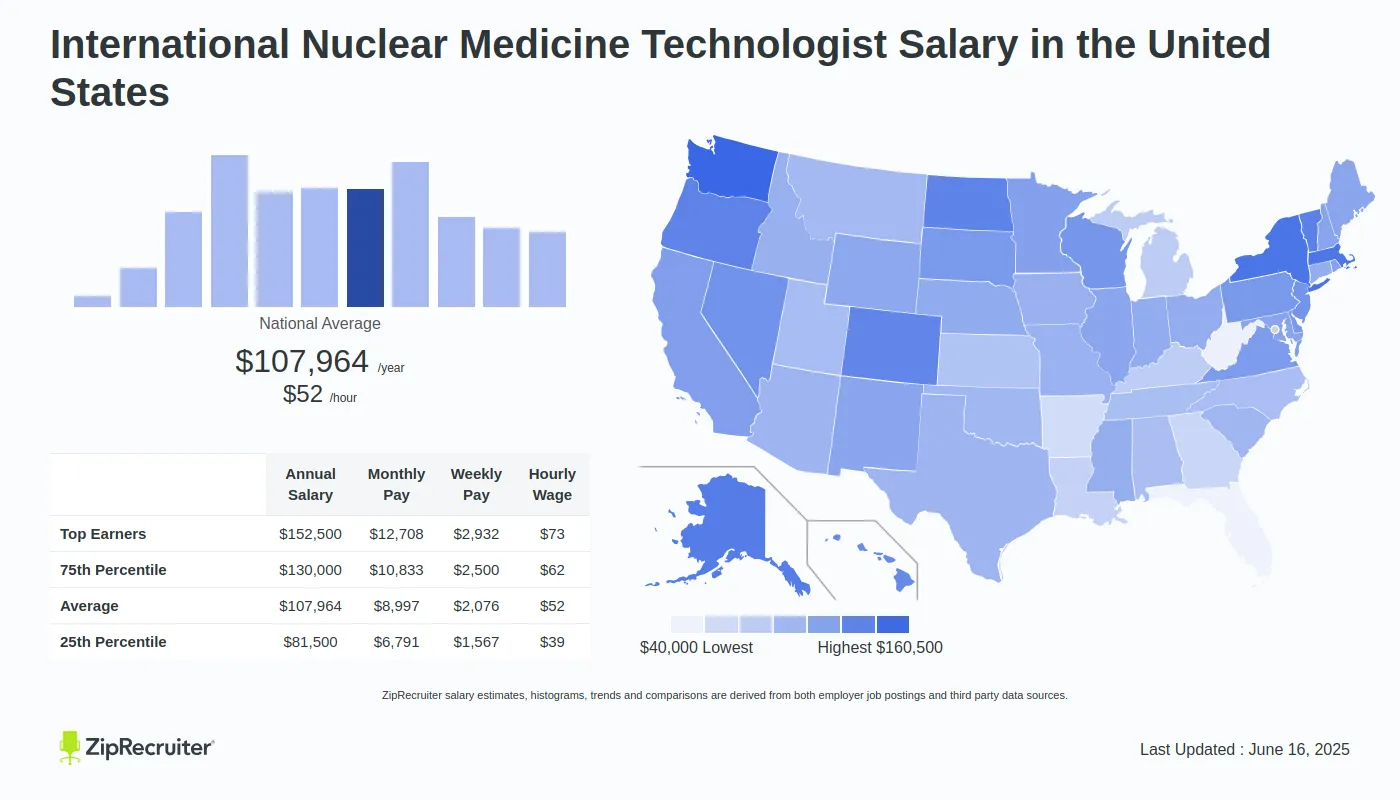

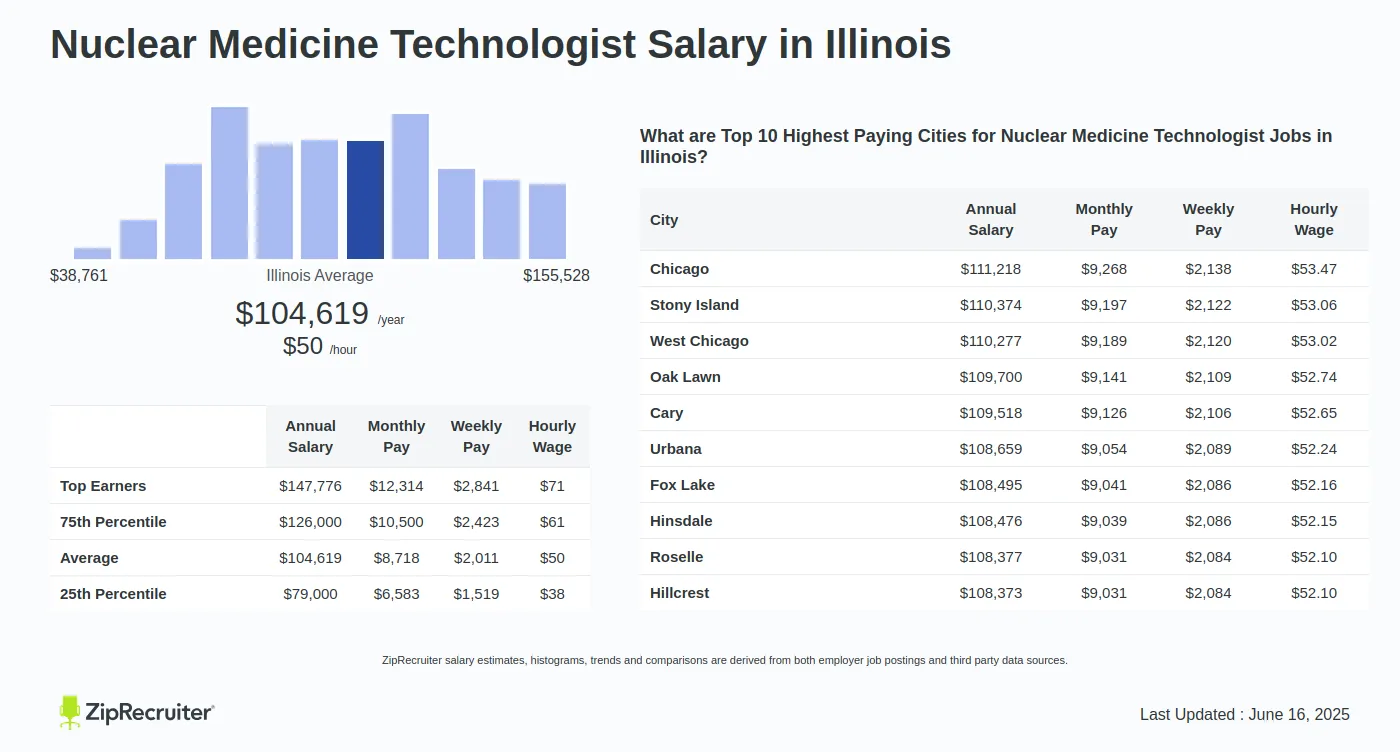

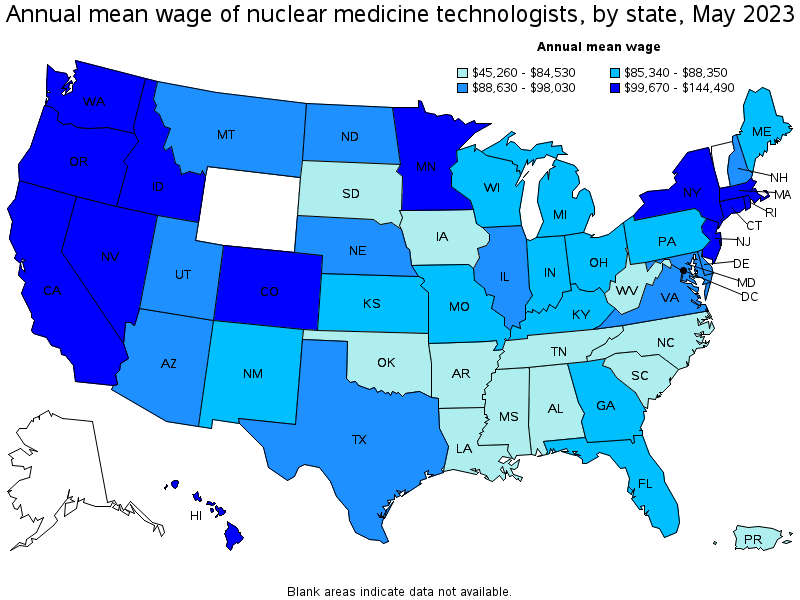

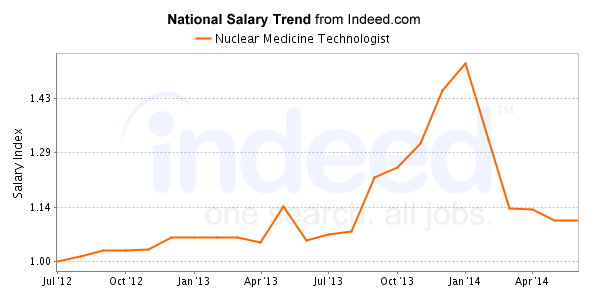
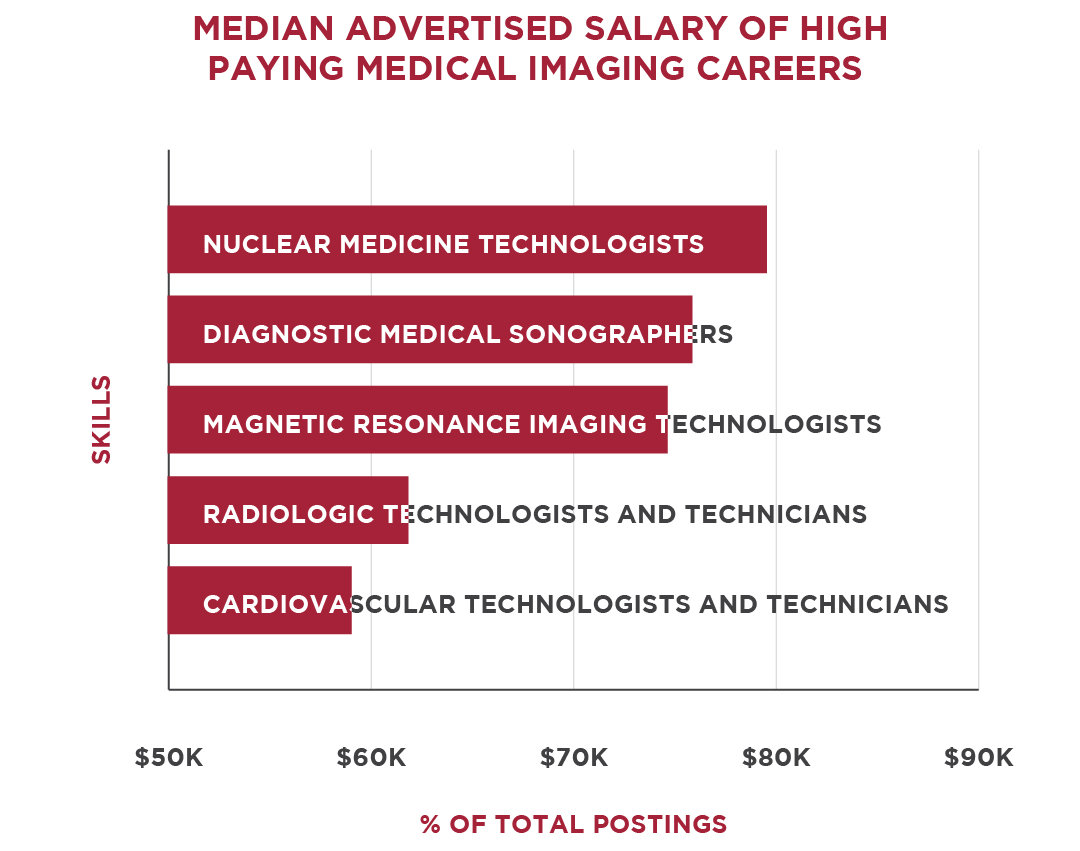

:max_bytes(150000):strip_icc()/nuclear-medicine-technologist-525675-337d863801f441dfbe88445304f0bf3b.png)
